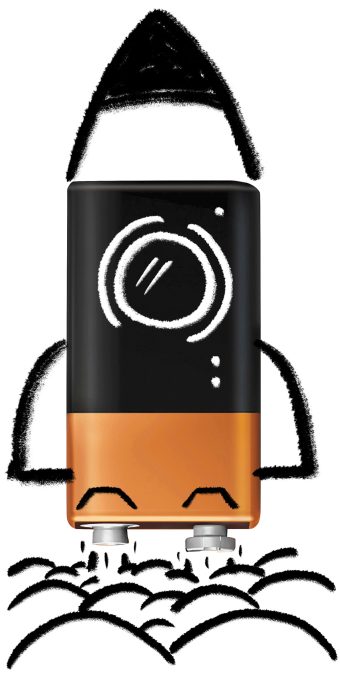
Published on Show Me Mizzou Dec. 16, 2022
Story by Jack Wax, BS Ed ’73, MS ’76, MA ’87
A team of MU researchers led by Matthias Young, BS ChE, ’10, is studying solid-state lithium-ion batteries to determine why the compact energy producers are not living up to their potential. If it can determine exactly what limits the batteries’ performance, the team will be one step closer to making these batteries more powerful, quicker to charge and less likely to overheat. Solid-state batteries are already used in some medical devices and are being tested for use in electric vehicles, smartphones and hundreds of other products.
Young, an assistant professor with joint appointments in the Department of Biomedical, Biological and Chemical Engineering and the Department of Chemistry, oversees the research lab that investigates thin film polymer coatings. The National Science Foundation awarded his group a $500,000 grant to study the interface between the lithium-ion battery cathode and the solid-state electrolyte.
“The key to overcoming critical scientific problems with these batteries depends on a deeper understanding of the chemical and structural characteristics of the interface,” Young says. In its search for this knowledge, the group will be zooming in on an atomic-level view of battery components using a specialized electron microscope located in the Roy Blunt NextGen Precision Health building.
To read more articles like this, become a Mizzou Alumni Association member and receive MIZZOU magazine in your mailbox. Click here to join.



